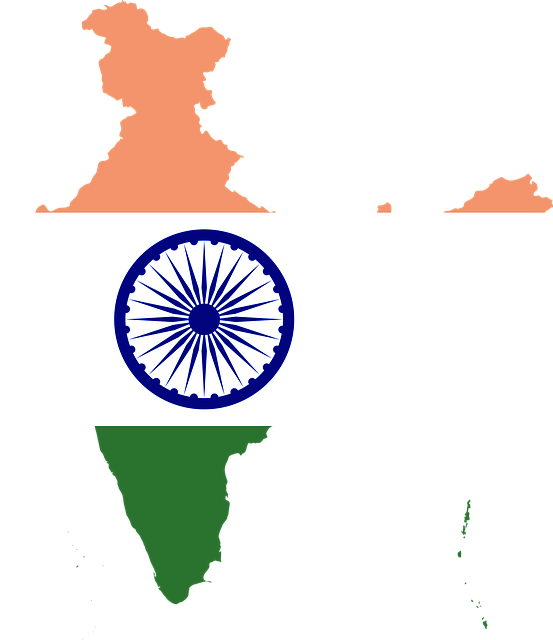Struggle for recognition of forced suicide
Guidance devices for frontline professionals.
Know, orient and perform psychological autopsy.
The legal bases
Legal bases in the world
See also :

Spain
Spain is recognized as a pioneer in the fight against violence against women following the adoption of the law of 28 December 2004 which aims to ensure full protection against gender violence. Its legislation is considered one of the most progressive legal texts in Europe in this area and is often taken as a model by feminist associations claiming similar legal frameworks. « Gender violence is not an issue that affects the private sphere. On the contrary, it represents the most brutal symbol of the existing inequality in our society. » By adopting a definition of gender violence as that against women on the sole ground that they are women, Spanish legislation provides for positive discrimination against women. This gendered apprehension has led to a proliferation of appeals before the Spanish Constitutional Court. It was argued that this approach to violence was unconstitutional and discriminatory. The Court of First Instance finally decided the question in May 2008 by stating that differential treatment between men and women does not constitute a form of discrimination since there is an objective and reasonable justification for it. Indeed, violence by a man is an expression of the grave inequality that women experience. In doing so, the Tribunal ratified the constitutionality of the legislation. Improvements were implemented through this legislation:
Specialized courts:
Specialized domestic violence courts have been created. The judges who compose them have thus followed a mandatory training before being able to integrate a jurisdiction specialized in the problem. Currently, there are 106 courts specializing exclusively in this field and 355 also dealing with other cases. This measure seems particularly appropriate given the need to perceive the underlying mechanisms at work in the case of domestic violence and to understand how they fit into relationships of domination. These elements seem to us essential to better understand these files.
Prohibition of mediation:
The law prohibits the use of mediation, both civil and criminal, in cases of violence against women. In doing so, Spain is in line with the Istanbul Convention, which also recommends this prohibition in its Article 48. However, this measure has been challenged by legal and social work professionals, the latter considering that it was adapted in certain hypotheses. For example, in a 2010 survey in Catalonia, a large majority of judges felt that it was appropriate in cases where “the violence was time-limited, small in scope and produced by the dissolution of the conjugal bond”. This way of thinking seems questionable. Indeed, the fundamental principles characterizing mediation, namely the equality of the parties, the neutrality of the mediator, the secrecy of the sessions and the desire to obtain equitable solutions do not seem to us feasible in the event of domestic violence and go against the interests of the victims. The latter find it very difficult to be confronted again with their (ex) aggressors and risk secondary victimization. Should justice not be a safe environment for women to feel confident and not a place that reproduces violence itself?
The anti-tampering strap:
The 2004 law gives judges the possibility to require perpetrators of domestic violence to wear an electronic bracelet. The individual concerned will, therefore, be obliged to wear this device named « anti-rollution bracelet» and to carry a kind of phone that will allow to locate him. He will be prohibited from approaching the victim beyond a defined perimeter. In the event that he does not respect this injunction, the protected woman will be notified, by a phone that is also issued to him, as well as the police who will intervene immediately. The device, put in place in 2009, proved to be. In 10 years of use, no femicide was committed against a protected person. It therefore appears that the deterrent effect is fully fulfilled. In addition, some women who benefit from it have claimed to feel protected since the installation of bracelets.
India
More than one in three women (37%) who commit suicide worldwide live in India. This is the conclusion of a study published on September 11, 2018 by the British scientific journal The Lancet. « Women’s suicide is a major public health issue, with very significant socio-economic, political and emotional consequences. » For Kamala Marius, associate researcher at the University of Bordeaux Montaigne and the French Institute Pondicherry, and author of the book Gender inequalities in India (Karthala, 2016), the modernization of the country has caused an increase in suicides, especially among women under 35, mostly married. « With the rise of the standard of living, there is a greater openness to the world possible, and therefore to the awareness of what one does not have in comparison to others,» she says. Female suicides account for 41% of suicides in India. The phenomenon is also due to the issue of forced marriage in India. The definition of forced marriage is being married against one’s will, with someone known or unknown. However, according to Article 16 of the Universal Declaration of Human Rights: "Everyone has the right to marry and to found a family without any restriction on race, nationality or religion. Marriage can only be concluded with the free and full consent of the future spouses. » According to forced marriage statistics, nearly one in five Indian women is forcibly married before the age of 15. In 2014, India alone accounted for one third of all underage marriages in the world. India is the only country in the world, along with France, to severely condemn forced suicide. Article 306 of the Penal Code provides that "every person who has incited another person to commit suicide is liable to a prison sentence of up to ten years, as well as an amendment". Since 1983, Indian law has made special and more stringent provisions for suicides of women who have been married for less than seven years, in response to the increase in dowry deaths, literally “deaths related to dowry”. At the time, more and more young wives committed suicide as a result of mistreatment, or even torture, inflicted by their in-laws whose dowry requests had not been met. These practices unfortunately still exist. Gopalan Nair Krishna Pillai case, Kerala state, 1988. The offender committed acts of violence against his wife because she did not meet his dowry demands. While the victim earned enough to cover the household expenses and gave birth to a son as he wished, the husband continued to demand that she ask her parents for even more money. After their separation, the husband’s lawyer negotiated a compromise and assured the wife that she would be safe. However, the husband continued to demand more money, which the victim asked his mother. When the victim did not pay immediately, she was beaten, and she ended up committing suicide. Husband convicted of inciting suicide. What is forced marriage?
Alarming numbers of forced marriages of minors in India
A law has been promoted to curb suicide related to forced marriage.
Testimony of forced marriage


Italy
Until 1981, in Italy, the murder of an unfaithful woman by her husband was justified as an honour offence and the perpetrator was only liable to a light sentence. However, this misogyny has not yet completely disappeared. Indeed, the gradual emancipation of women clashes head on with the still current conception in certain social strata of women as objects of possession and control. In 2013, domestic violence affected one in three women. Therefore, on October 15, 2013, a law was passed, containing urgent provisions on the fight against gender violence. Several measures are being taken:
Conclusion
Need for European recognition of the concept

Legal
terms
The Committee on Equal Opportunities for Women and Men of the Parliamentary Assembly of the Council of Europe (PACE) organized the hearing on 8 June 2011 of Marie France Hirigoyen, psychiatrist, and Yael Mellul, member of our project team, to take stock of the situation in the member states of the Council of Europe with, as an objective, the recognition of psychological violence as an offence and its inclusion in the Convention to prevent and combat violence against women and domestic violence. For psychiatrist Marie-France Hirigoyen, erecting psychological violence into a crime is a way of acting upstream, to prevent; but without education of all stakeholders, including judges and police officers, it is inapplicable.
In conclusion, Elvira Kovacs (Serbia, EPP/CD, in charge of preparing a report on this subject, considered that psychological violence should be criminalized even if it is difficult to prove, and include it in the Council of Europe Convention to prevent and combat violence against women and domestic violence.
For example, the Council of Europe Convention on the Prevention and Combating of Violence against Women and Domestic Violence, adopted on 11 May 2012, made it a criminal offence: the intentional act of undermining the psychological integrity of a person by coercion or threats (Article 33 – Violence psychologique).
It is now a question of going further and integrating the most extreme traumatic consequence of harassment, suicide and suicide attempt in order to enshrine this essential principle: moral harassment kills, as well as physical violence.
Epidiemological
terms
The number of forced suicides remains little or not documented. Several studies conducted in France. In the United Kingdom and the United States, however, they tend to account for 12% of female suicides based on an estimate of the number of female suicide attempts attributable to violence within a couple. This ratio was applied by Psytel’s independent experts, who provided an estimate for the Grenelle needs of domestic violence.
According to Psytel, 217 women died because of violence perpetrated on them by their spouse in 2018 in France.
In a future deliverable (D3.1, available at the end of November 2021), we will return in more detail to these estimates that we will try to conduct at the level of all SMEs, taking into account the results of more recent studies.
Political
terms
The notion of moral harassment on spouse is accepted in the majority of States, but nothing is provided in case of death of the victim. France is the first state in Europe to have added an aggravating circumstance in case of suicide or attempted suicide. The person responsible will then be tried before a Criminal Court and the penalties incurred will be 10 years imprisonment and 150,000 euros fine.
On the occasion of the 19th International Day for the Elimination of Violence against Women, France reaffirmed its commitment and determination to the international community to combat and eliminate all forms of violence against women. In collaboration with its European and international partners, France has launched a campaign to universalize the adoption of the Council of Europe’s Istanbul Convention on the prevention and fight against violence against women and domestic violence.
The purpose of the Istanbul Convention is to put an end to violence against women and domestic violence, and to guarantee the fundamental right of women to live free from violence. The prevention of violence, the protection of victims and the prosecution of perpetrators are the pillars of the Convention, which affirms that the fight against gender-based violence can only be effective if States implement coordinated comprehensive policies.
It is in this spirit that the essential principle for combating all forms of violence must be enshrined in the Istanbul Convention and must be recognized in each Member State.
“Psychological violence is the cement of domestic violence and must be considered the psychological equivalent of murder. Without a psychic preparation to submit it, no woman would accept physical violence. It is this psychic preparation intended to submit it, no woman would accept physical violence. It is this psychic preparation, this psychological pressure, this violence of the words creating a situation of domination, which lead irreversibly to the moral destruction of a being, then to the violence of the blows.”
- YAEL MELLUL

- MARIE-FRANCE HIRIGOYEN

“The act must make it an offence to intentionally advise, encourage, induce or assist a person to commit suicide, or any attempt to do so.”
- onu women

This site was funded by the European Union’s Rights, Equality and Citizenship Programme (2014-2020). The content of this site represents only the point of view of the author and is his sole responsibility. The European Commission accepts no responsibility for the use that may be made of the information contained therein.
Contact us
info@forcedsuicidedomesticviolence.eu

